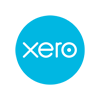5 taxes self-employed people should be aware of
When you become self-employed, you will have to pay taxes at the end of the tax year. However, for many solo traders, it can be confusing to decipher the complicated tax rules in the UK, and this makes it difficult for them to figure which tax should be paid to the HMRC.
Income tax
As a solo trader, income tax is paid on the profits of the business. If you don’t have another source of income and your business is not making a profit, you will start paying income tax only after the profits exceed the existing personal allowance.
In case your business is registered as a limited company, you will have to pay income tax on the dividends or salary that you get from the company. The tax amount depends on how you take from the company. If you pay income tax from the salary you get from your company, it will be deducted under the PAYE scheme.
National Insurance
If you are a solo trader, you will pay two types of National Insurance. One is the Class 2 National Insurance, which is paid if you earn more than £5,965 a year. The second is the Class 4 National Insurance, which is paid when you earn profits of more than £8,060 a year. Here, you will pay a percentage of your profits.
If your business is a limited company and you earn a salary of £8,060 or more, you will be paying Class 1 National Insurance to the HMRC.
Corporation tax
You pay corporation tax if your business is limited company. You have to pay the tax nine months and one day after the account year of the company ends. So, if your company’s account year ends on March 31, the tax will be due on January 1.
As a solo trader, you don’t have to pay corporation tax.
VAT
Whether you are a solo trader or have a partnership or limited company, you will have to pay VAT if your sales exceed £82,000 a year. In such a case, you would have to get registered for VAT. You can reclaim the VAT for goods and services you purchase for your business.
In case you have an office, you may be liable to pay business rates. Some properties, like farm buildings, are exempt from business rates, while others enjoy a relief. If you operate from your home, you will not have to pay business rates or council tax unless you employ staff or get customers coming to your home office.




